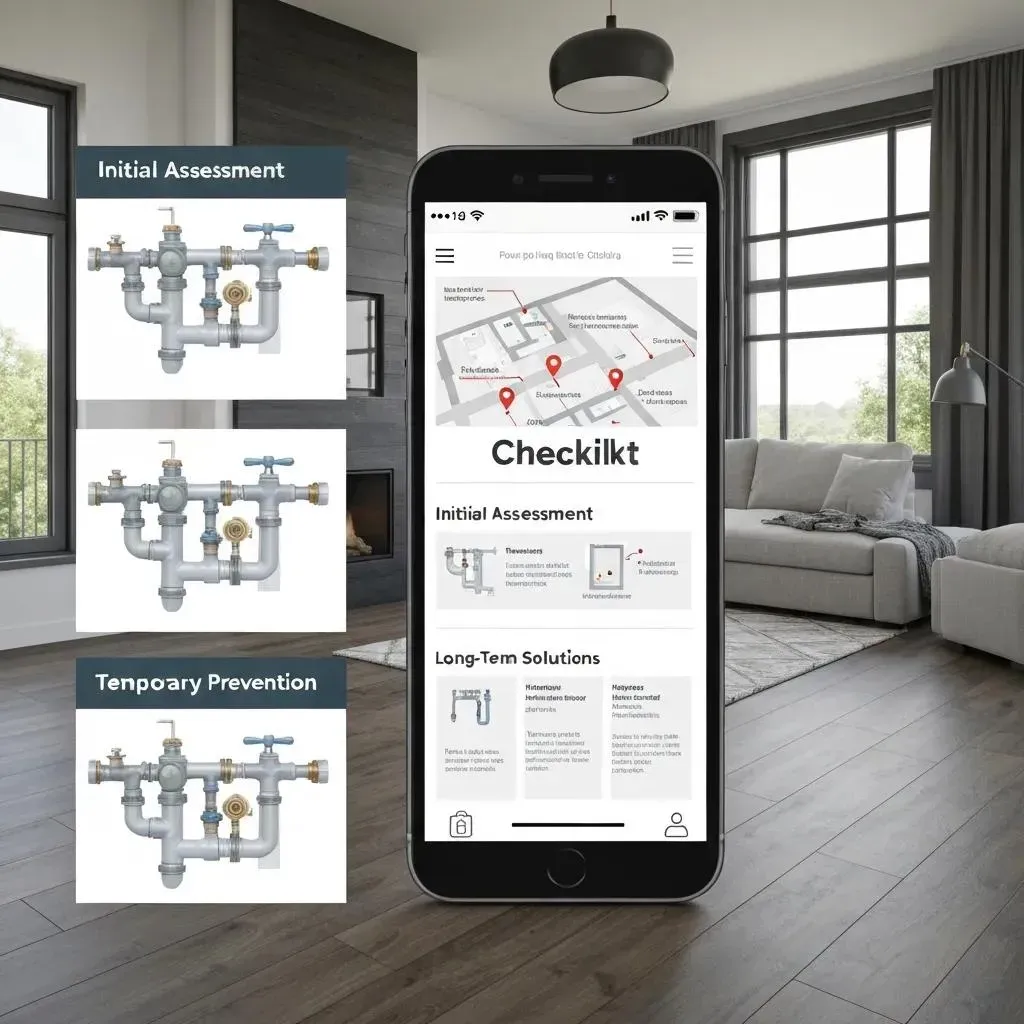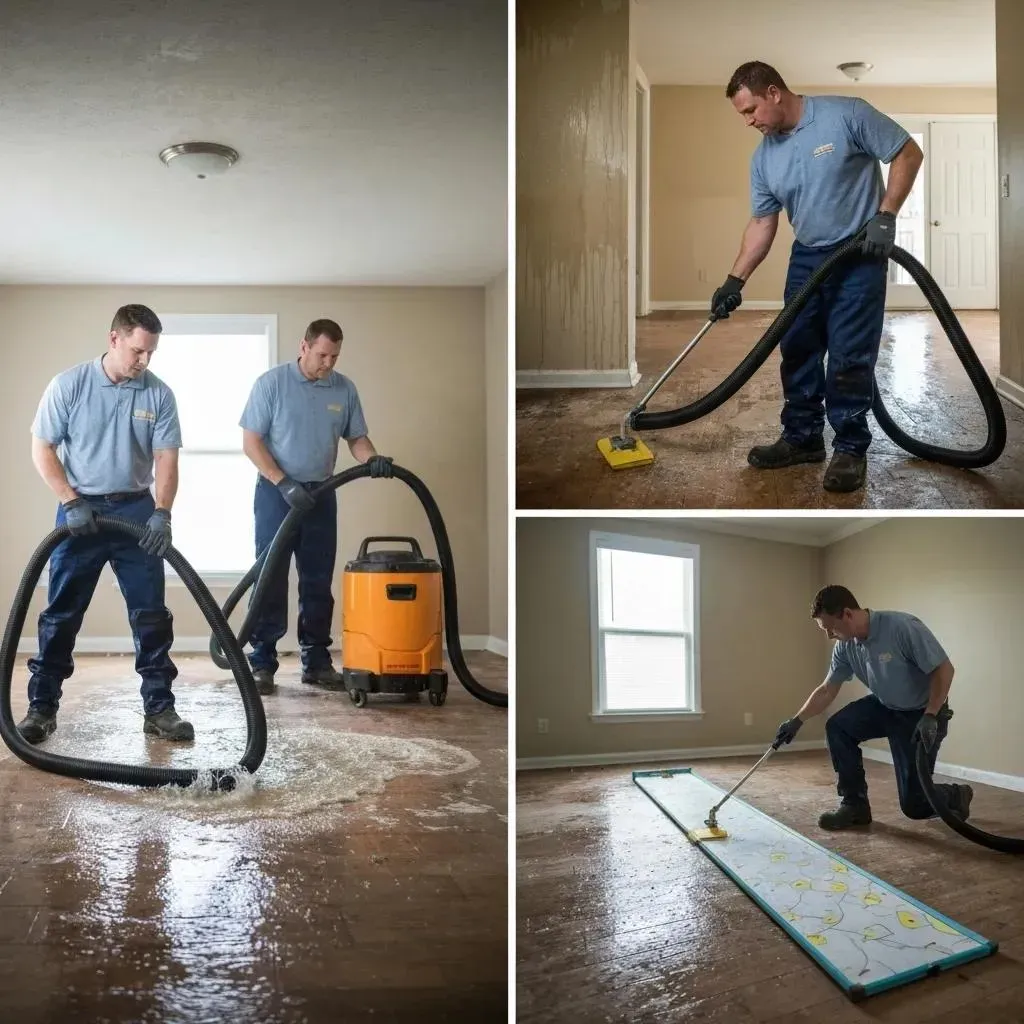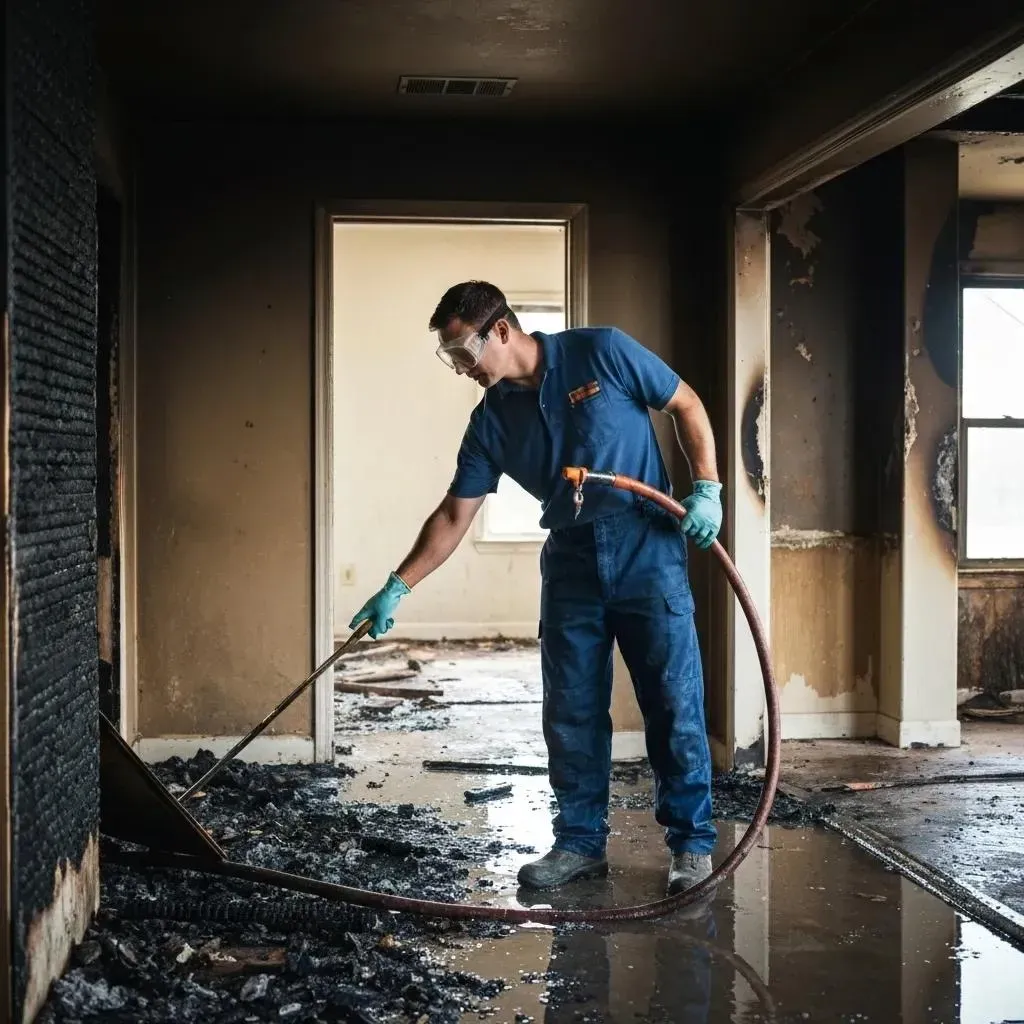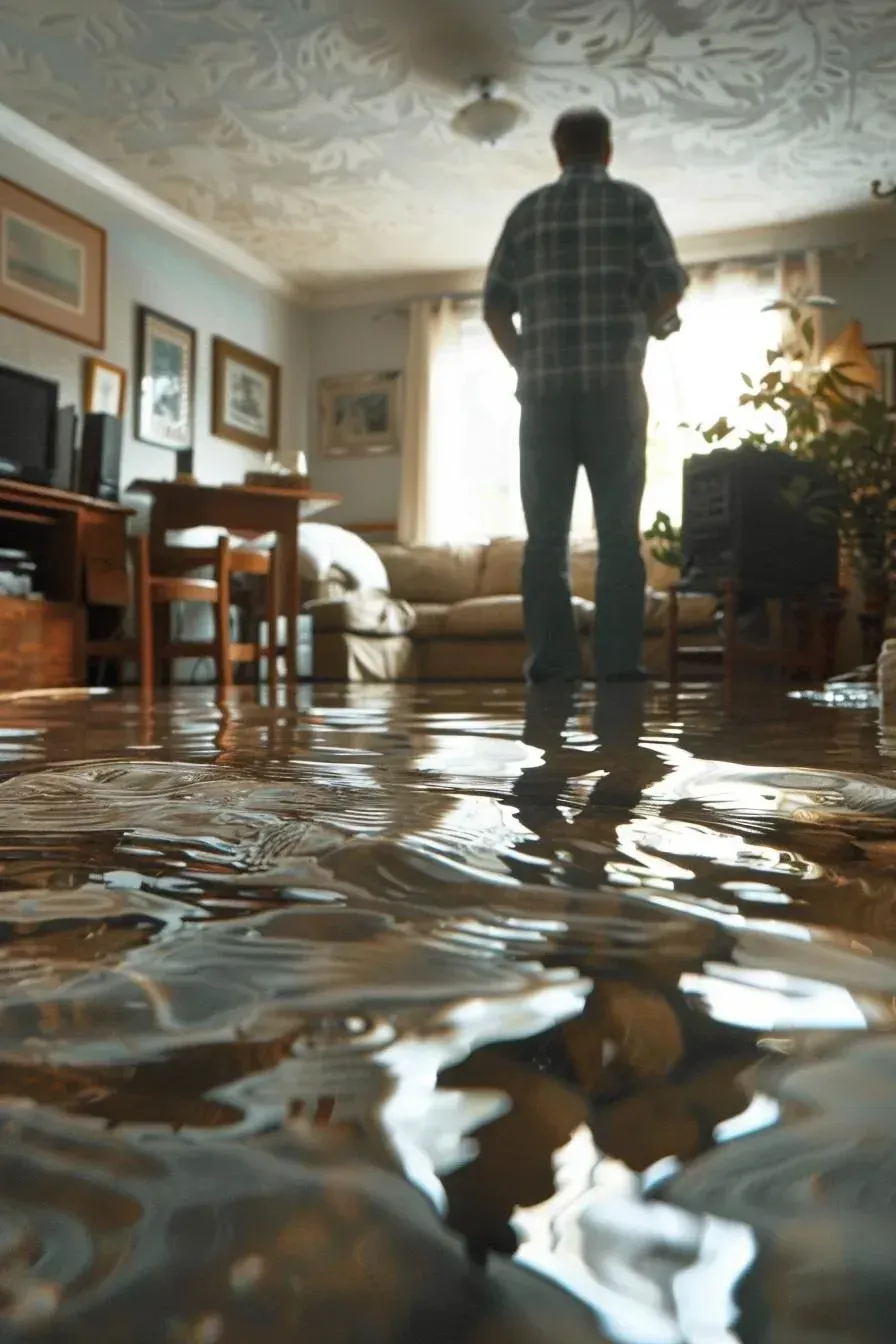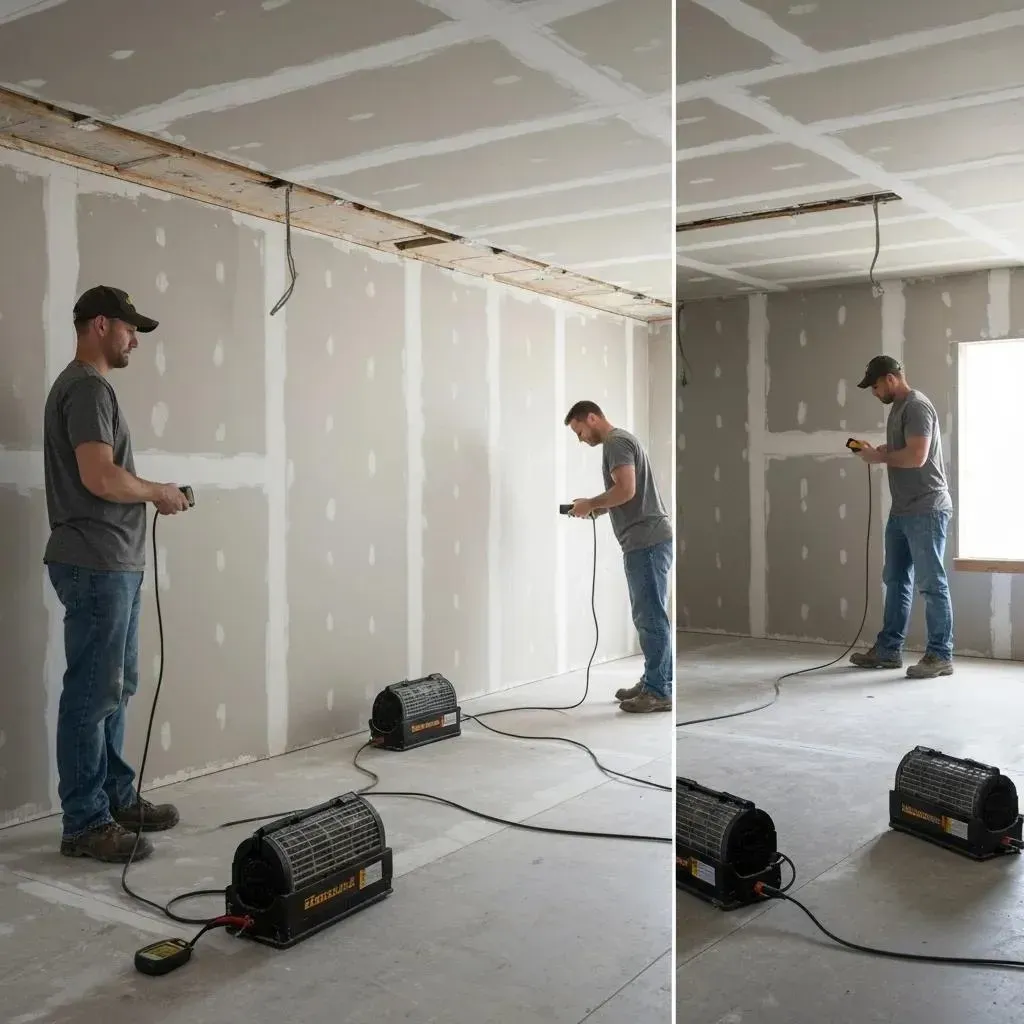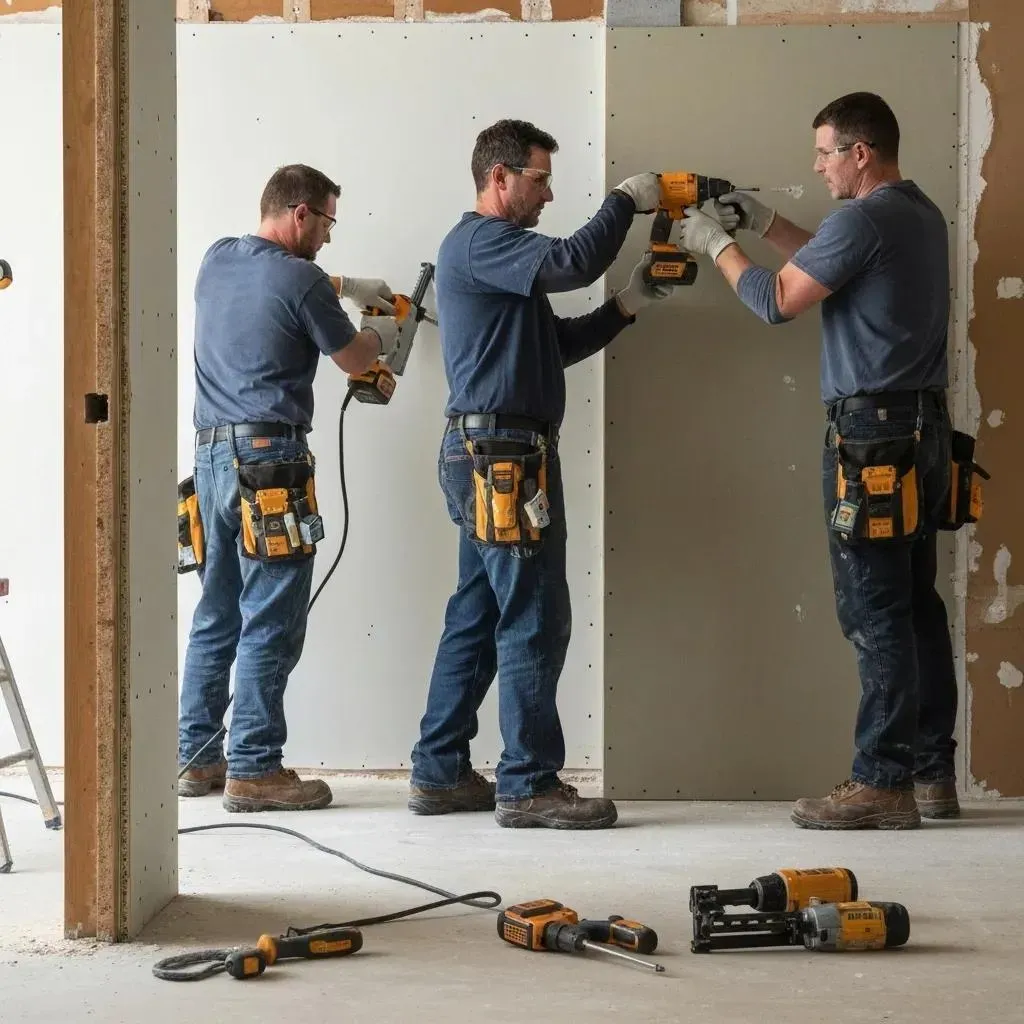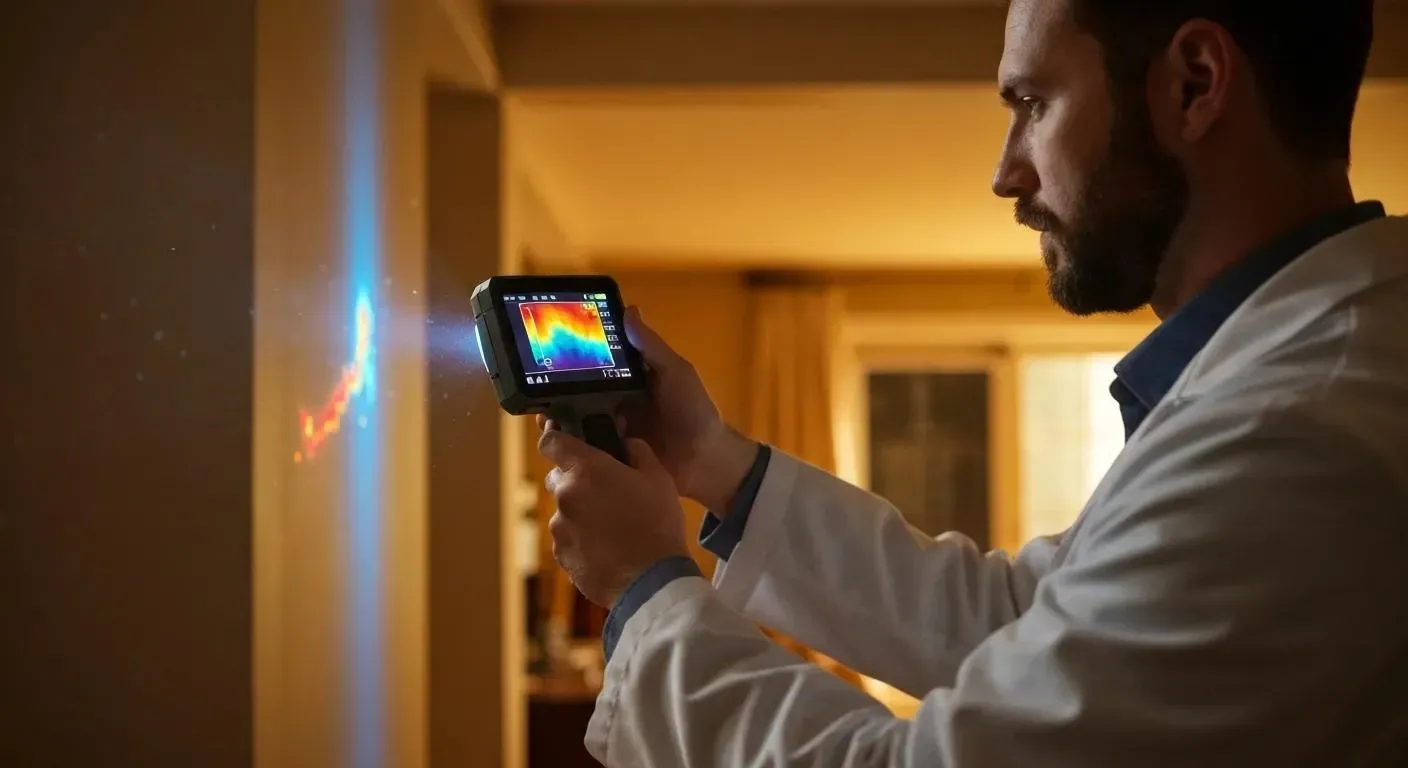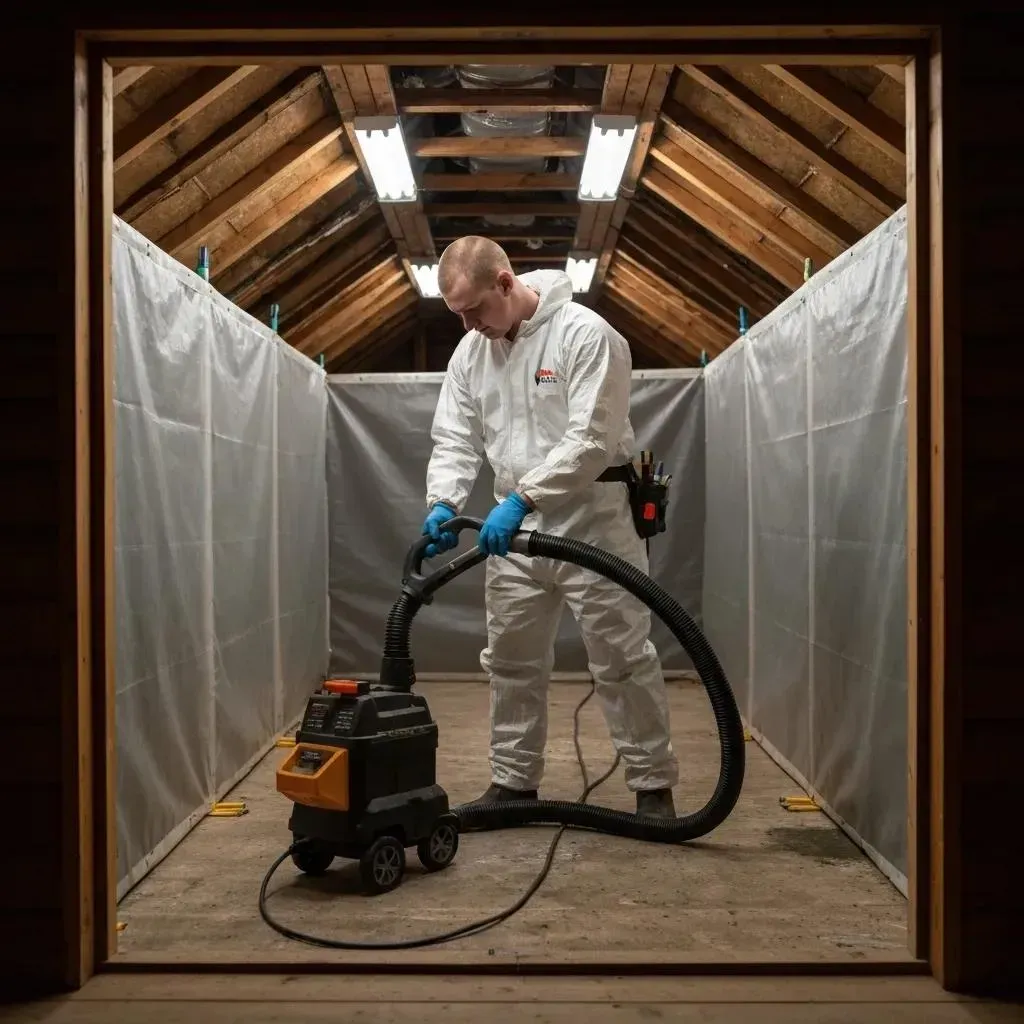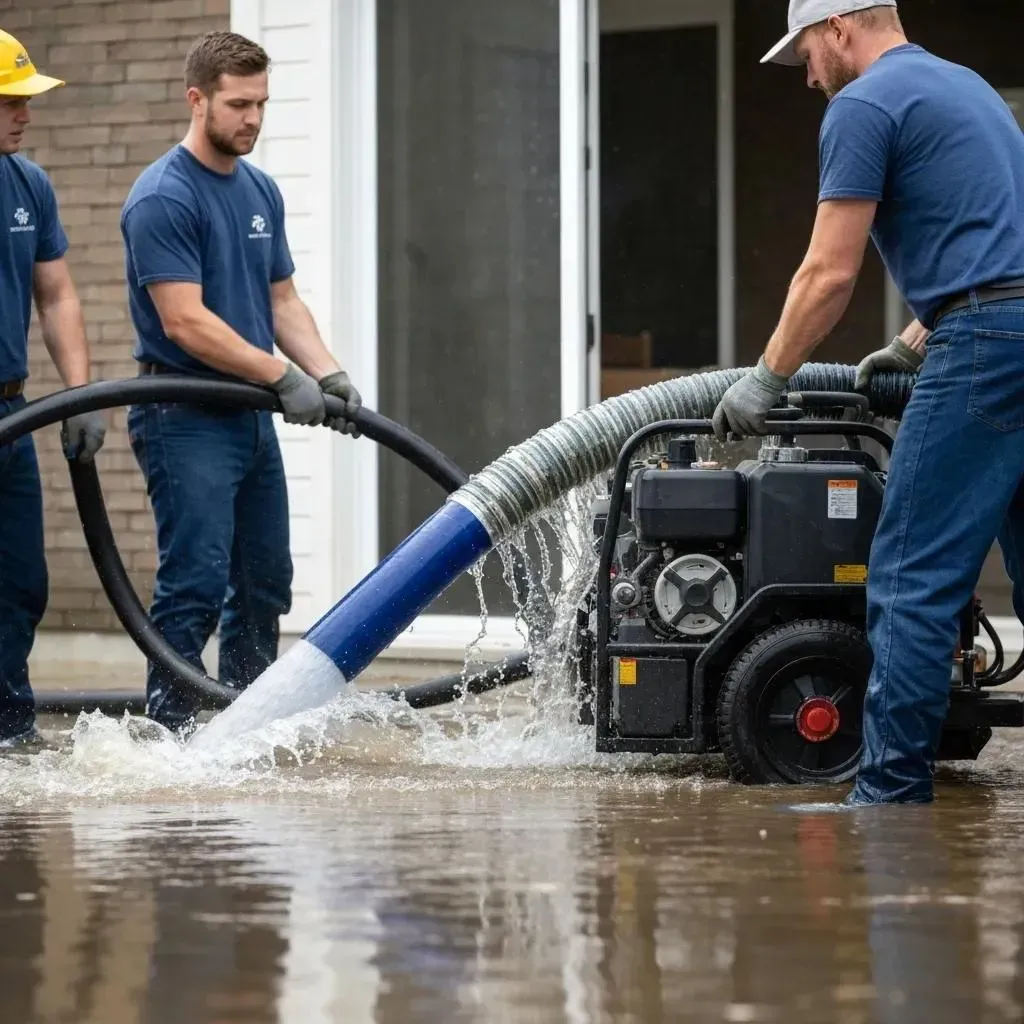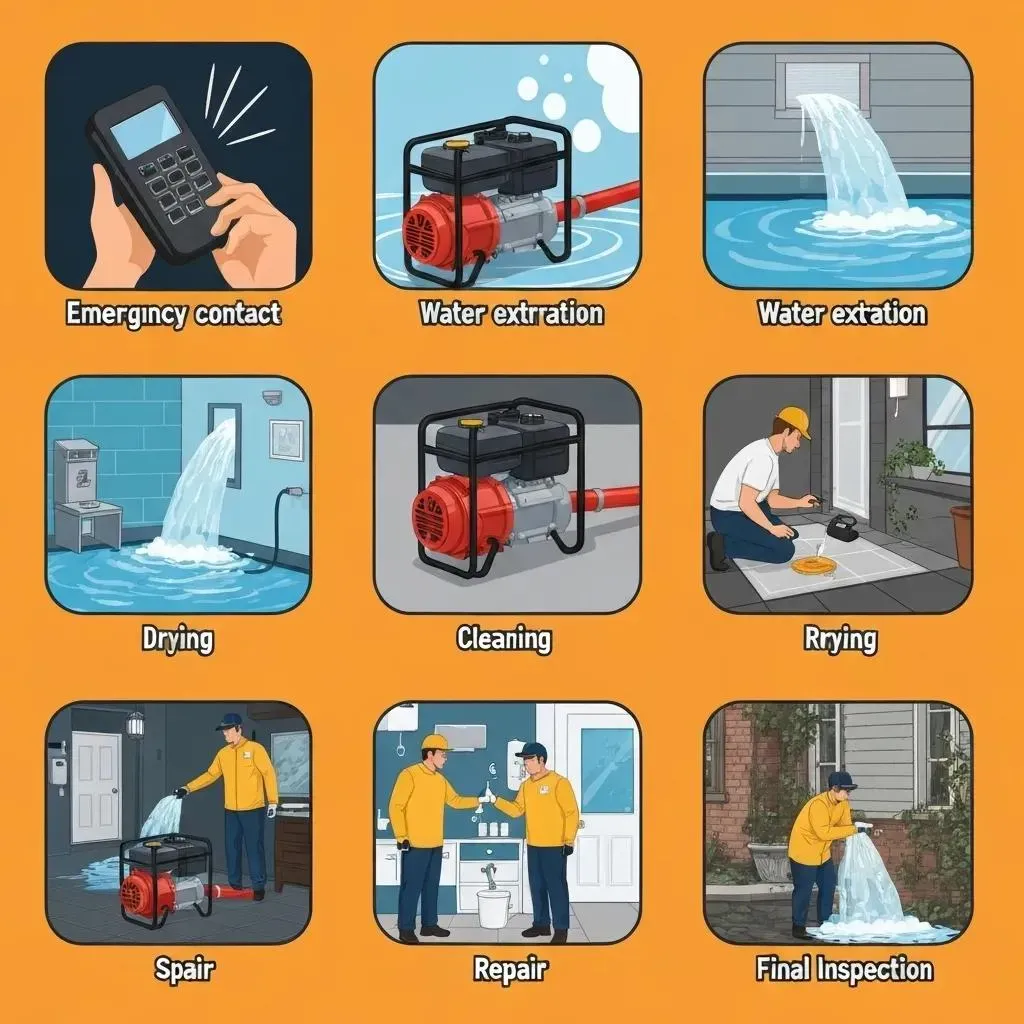Blog
Why Understanding Water Damage Restoration Costs is Critical for Every Homeowner
Water damage restoration cost typically ranges from $1,361 to $6,270 nationally, with an average of $3,814. However, costs can vary dramatically based on the type of water, extent of damage, and materials affected.
Quick Cost Overview:
- Clean water damage: $3.50 per square foot
- Gray water damage: $5.25 per square foot
- Black water damage: $7.50 per square foot
- Emergency services: Add $50-$200 to standard rates
- Average insurance claim: $12,514 (2021 data)
- Professional labor: $70-$200 per hour
ater damage strikes without warning. One minute you're enjoying a quiet evening at home, the next you're standing in your kitchen watching water pour from a burst pipe above your ceiling. As one homeowner shared after finding water damage, "Dealing with water damage can be a homeowner's worst nightmare, and understanding the water damage restoration price can add another layer of stress to an already difficult situation."
The financial impact extends far beyond the initial cleanup. Delaying action by even 24-48 hours can escalate costs significantly as mold begins to grow and structural damage worsens. What starts as a $500 clean water extraction can quickly become a $15,000+ restoration project involving mold remediation and structural repairs.
Understanding these costs upfront helps you make informed decisions during what's often a stressful emergency. Whether you're dealing with a minor leak or major flooding, knowing what to expect financially allows you to focus on protecting your family and property rather than worrying about surprise expenses.
I'm Mike Martinez, owner of Accountable Home Services, and I've helped countless Denver-area homeowners steer water damage restoration cost decisions during some of their most challenging moments. My team's experience with direct insurance billing and transparent pricing helps families understand exactly what they're paying for and why prompt action saves money in the long run.
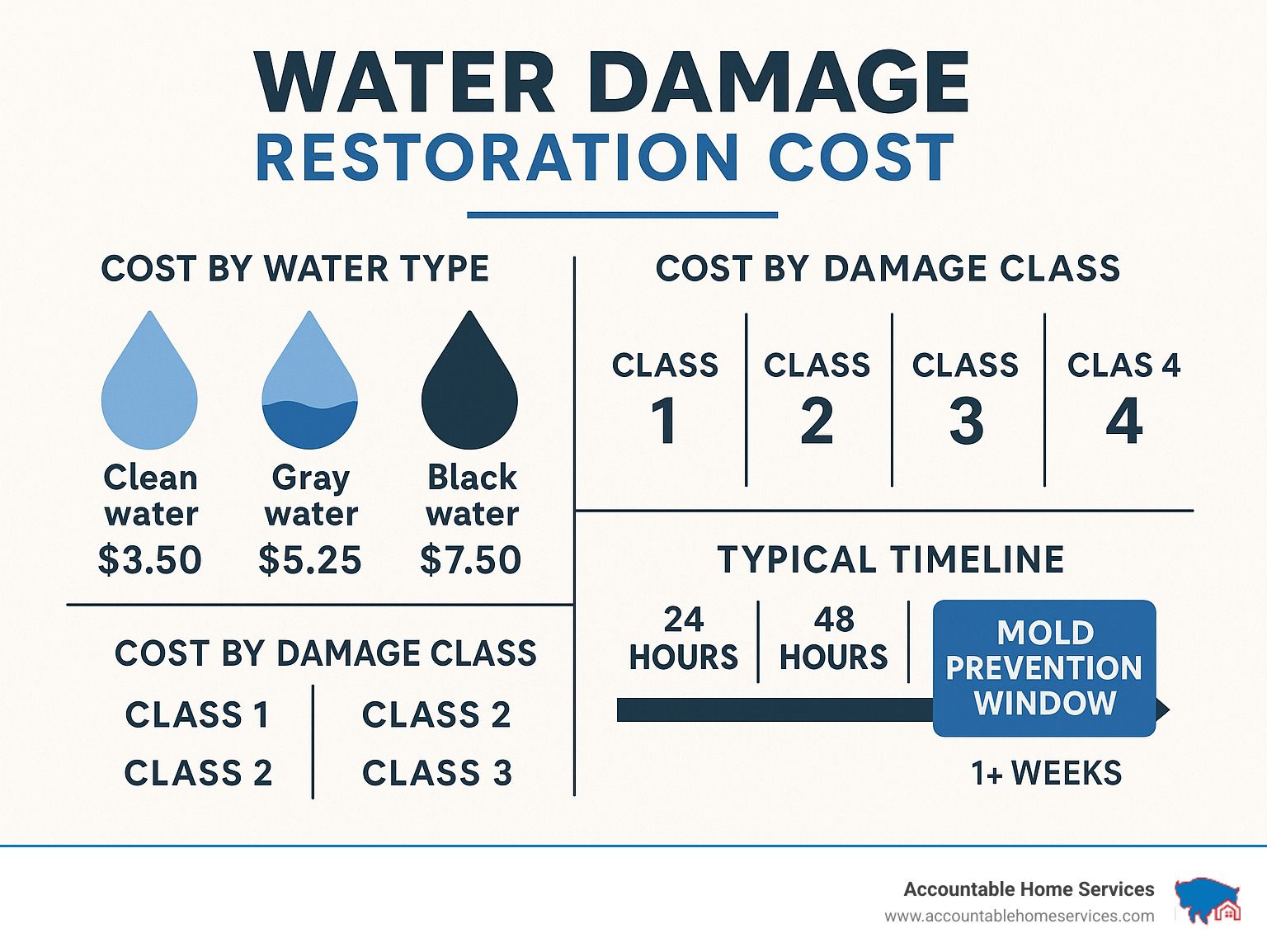
Understanding Water Damage Restoration & Why It Matters
Water damage restoration isn’t just about drying surfaces—it’s a precise, time-sensitive process that returns your home to a safe, healthy condition. The moment water enters a structure, the EPA’s 48-hour rule kicks in: if moisture isn’t removed, mold can start colonizing and restoration costs rise quickly.
Professionals classify water by category and class:
- Category 1 (clean) – supply-line leaks, rainwater. Easiest and least costly.
- Category 2 (gray) – appliance overflows containing detergents or mild contaminants.
- Category 3 (black) – sewage or floodwater carrying dangerous bacteria; needs hazmat-level cleanup.
Classes reflect how far the water has spread—from a small corner (Class 1) to deeply saturated hardwood or concrete (Class 4).
Why call pros? Certified technicians use moisture meters, thermal imaging, and industrial dehumidifiers that dry materials 10–20 × faster than household fans. They also wear proper PPE when gray or black water is present, protecting your family from pathogens, electrical hazards, and hidden structural damage.
DIY cleanup is safe only for minor Category 1 spills caught immediately. Anything larger—or any gray/black water—demands professional help to avoid turning an $800 extraction into a $4,000 mold remediation later on.
Water Damage Restoration Cost Breakdown
Across the U.S., water damage restoration cost typically falls between $1,361 and $6,270, with Denver projects clustering around $1,200–$5,000 for standard incidents. Three things drive your bill:
- Water type (clean, gray, black)
- Extent of saturation (Class 1–4)
- Labor & equipment time (24/7 response, specialty drying)
Typical professional rates: $70–$200 per hour for IICRC-certified labor plus $50–$200 after-hours fees.
Water damage restoration cost per square foot
Clean (Category 1)
$3.50
Extract & dry
Gray (Category 2)
$5.25
Antimicrobial, PPE
Black (Category 3)
$7.50
Hazmat removal
Those rates already include equipment such as truck-mounted extractors, industrial dehumidifiers, and air movers—gear that can cost contractors $50k+ to own but slashes drying time from weeks to days.
Average project ranges by category
- Category 1: $350–$2,500
- Category 2: $1,000–$6,000
- Category 3: $2,500–$16,000+
Remember: the faster you act, the lower the class of damage stays—and the less you pay.
Detailed Repair & Room-Specific Costs
Not all rooms cost the same to fix. Accessibility, finishes, and square footage matter almost as much as water volume.
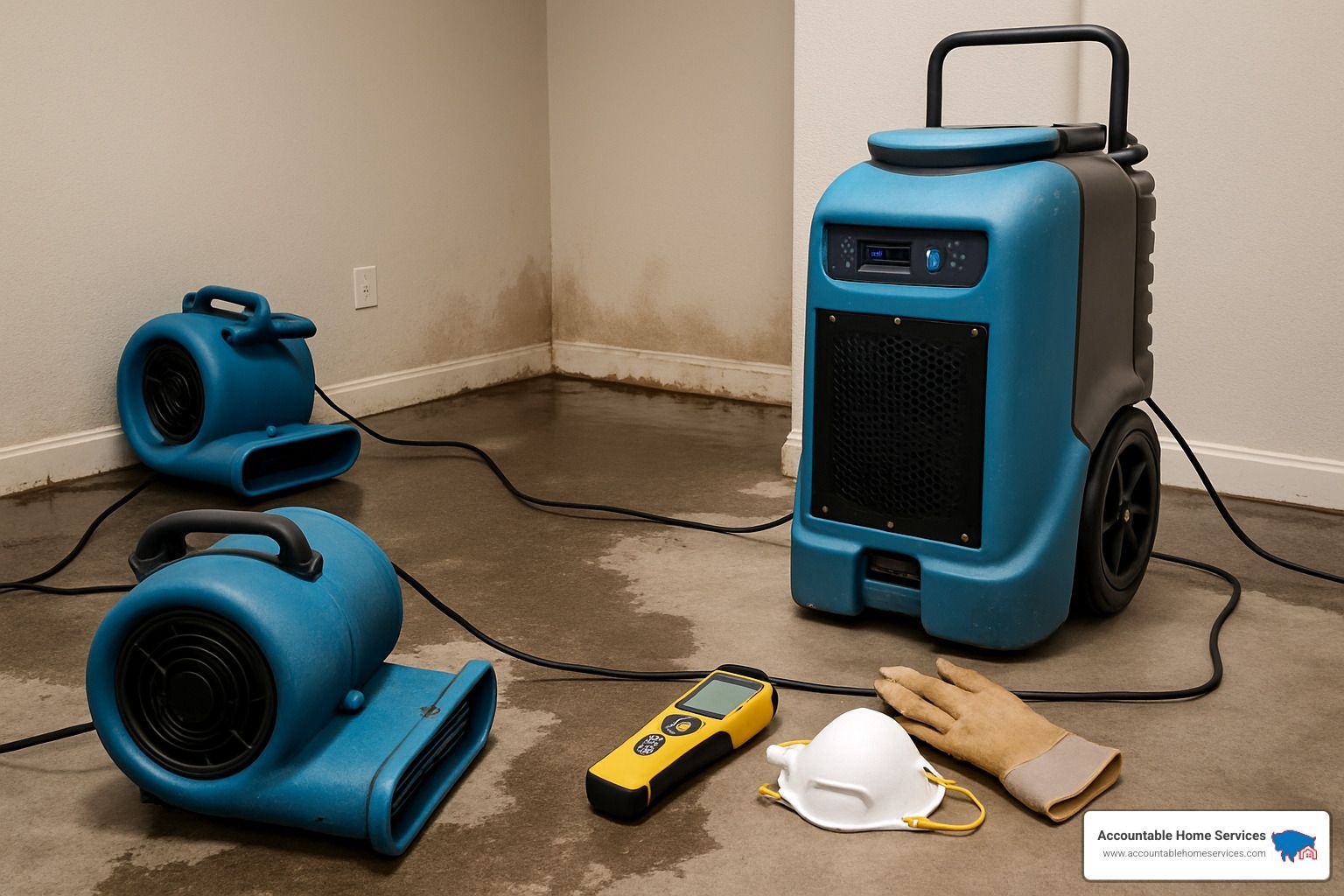
Approximate Denver-area ranges:
- Basement: $2,000–$85,000 (unfinished vs. luxury media room)
- Bathroom: $1,180–$4,120
- Kitchen: $2,265–$6,190
- Attic: $2,915–$9,505
- Living/Office spaces: $3,265–$18,650
Material costs add up fast:
- Drywall replacement: $300–$850 per area
- Hardwood refinishing: $3–$8 / sq ft (vs. $8–$15 for full replacement)
- Carpet replacement: $2–$8 / sq ft
- Foundation repairs (if water compromises structure): $5,000–$20,000
A sump pump install averaging $1,200 or annual gutter maintenance can prevent many of these expenses.
Factors That Influence Your Final Bill & Money-Saving Tips
Key cost drivers:
- Source & category of water (clean vs. contaminated)
- Response time – every hour after the leak adds risk and dollars
- Square footage & materials – porous items (carpet, drywall) raise costs
- After-hours or holiday service – expect $50–$200 extra
Quick ways to save
- Call immediately. A Sunday-night $50 emergency fee is cheaper than Monday-morning mold.
- Document thoroughly. Photos + moisture readings speed insurance approvals.
- Install smart leak detectors ($50–$300) or whole-house shut-off valves (often eligible for 5–15 % insurance discounts).
- Winterize & insulate pipes—$200 in prevention beats $5,000 in freeze damage.
Coverage tips: most policies pay for sudden, accidental water damage (burst pipes) but not gradual leaks or surface flooding. Review limits annually and know your deductible before an emergency strikes.
More info about Water Damage Insurance Claims
The Water Damage Restoration Process Step-by-Step
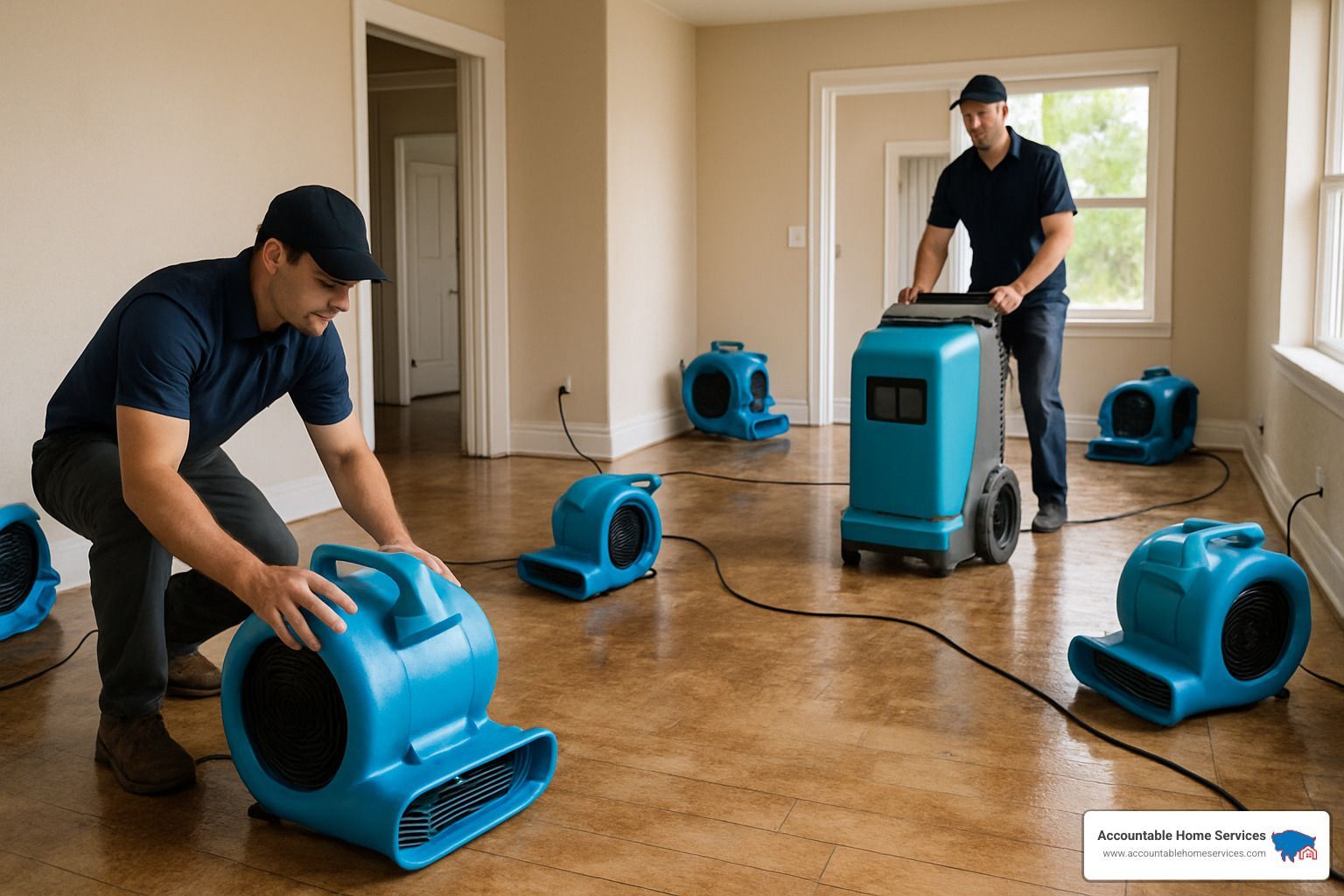
Accountable Home Services completes most projects in 3–14 days:
- Inspection & Estimate – IICRC-certified technicians map moisture with thermal imaging and set a clear scope of work.
- More info about Water Damage Restoration Process
- Water Extraction – Truck-mounted pumps and wet vacs pull out standing and hidden moisture.
- Cleaning & Sanitizing – Antimicrobials, HEPA filtration, and odor control stop bacteria and mold before they spread.
- Structural Drying & Repairs – Industrial dehumidifiers create optimal drying conditions; then crews replace drywall, flooring, and paint so your home looks “better than before.”
Throughout the job, we document everything for your insurer and offer direct insurance billing to keep the financial stress off your shoulders.
How to Choose a Trustworthy Denver Restoration Company
Choosing the right restoration company can make the difference between a smooth recovery and a prolonged nightmare. When water damage strikes, you're already stressed—the last thing you need is to worry about whether your restoration team knows what they're doing.
The foundation of any trustworthy restoration company starts with IICRC certification. This isn't just a fancy acronym—it means technicians have received proper training in water damage restoration techniques and safety protocols. When someone shows up at your door claiming they can handle your water damage, ask to see their certification. If they hem and haw or make excuses, keep looking.
24/7 emergency response capability isn't negotiable either. Water damage doesn't wait for business hours, and neither should your restoration company. A company that can't respond immediately may be too small to handle your project properly or doesn't prioritize emergency situations.
Look for local references and an established reputation in the Denver Metro Area. A company that's been serving your neighbors successfully for years understands our unique climate challenges and has built relationships with local insurance adjusters. They're also more likely to stand behind their work since their reputation depends on satisfied local customers.
Transparent pricing with detailed estimates protects you from surprise charges later. Legitimate companies explain exactly what work needs to be done and why. If someone gives you a vague estimate or pressures you to sign immediately, that's a red flag.
Direct insurance billing can save you thousands in upfront costs. Companies experienced with insurance work understand the claims process and can often bill your insurance company directly for covered repairs. This means you're not scrambling to pay large bills while waiting for insurance reimbursement.
Don't forget about written warranties on work performed. Water damage restoration isn't just about getting the water out—it's about preventing future problems like mold growth. A company that warranties their work demonstrates confidence in their methods and gives you recourse if issues arise later.
Red Flags & Must-Ask Questions
Some warning signs should send you looking elsewhere immediately. No proper licensing or insurance is a deal-breaker. If something goes wrong during the restoration, you could be liable for injuries or additional damage if the company isn't properly insured.
Vague estimates without detailed scope often lead to cost overruns and disputes. Professional restoration companies use moisture meters and detailed assessments to provide accurate estimates. If someone eyeballs your damage and gives you a rough number, they're probably not equipped to handle complex restoration work.
Never work with companies that demand full payment upfront. Legitimate restoration companies typically work with insurance billing or payment schedules tied to project milestones. Upfront payment demands often indicate cash flow problems or fly-by-night operations.
Be especially wary of door-to-door solicitation after disasters. Storm chasers and scammers often target neighborhoods after weather events, offering quick fixes that create bigger problems. Established local companies don't need to chase disasters—their reputation brings them steady work.
Prices significantly above or below market rates both deserve scrutiny. Extremely low prices often mean corners will be cut, while excessively high prices may indicate you're being taken advantage of during a vulnerable time.
When evaluating companies, ask these key questions: "Are your technicians IICRC certified?" This confirms proper training. "Can you provide local references from recent projects?" establishes their track record in your area. "Do you offer direct insurance billing?" shows their experience with claims. "What warranty do you provide on your work?" demonstrates their confidence. "How quickly can you respond to emergencies?" reveals their capacity and priorities.
Why Timely Response Matters in Colorado's Climate
Colorado's climate creates unique challenges that make quick response even more critical than in other regions. Our extreme freeze-thaw cycles can turn a manageable water leak into a structural disaster within hours. When temperatures drop below freezing, any remaining moisture can expand and crack pipes, foundations, and building materials.
The high-altitude sun in Colorado is surprisingly intense and can cause rapid, uneven drying that leads to warping, cracking, and permanent damage to wood and other materials. Professional restoration companies understand how to control the drying process to prevent these secondary damages.
Even wildfire smoke residue can complicate water damage restoration in our area. The combination of moisture and smoke particles can create stubborn odors and staining that require specialized treatment methods.
Local companies like Accountable Home Services understand these Colorado-specific challenges. Our 24/7 emergency response ensures we can begin mitigation immediately, preventing the escalation that's particularly problematic in our climate. We've learned through years of experience how Colorado's conditions affect different materials and adjust our restoration approach accordingly.
The bottom line is this: water damage restoration cost escalates quickly when the wrong company handles your project or when response is delayed. Taking time to choose a qualified, local restoration company with proper certifications and transparent practices protects both your home and your wallet in the long run.
Frequently Asked Questions about Water Damage Restoration Costs
When water damage strikes your home, questions flood your mind faster than the water itself. After helping hundreds of Denver families through these challenging situations, I've heard the same concerns repeatedly. Let me address the most common questions about water damage restoration cost to help ease your worries during what's already a stressful time.
How fast should I start cleanup to avoid mold?
The clock starts ticking the moment water enters your home. You have 24-48 hours to begin cleanup before mold becomes a serious threat. The EPA's 48-hour rule isn't just a suggestion—it's based on how quickly mold spores can establish colonies under ideal conditions.
Here's what many homeowners don't realize: mold doesn't wait for the perfect 48-hour mark. In Colorado's variable humidity, spores can begin growing within 24 hours, especially in warm, moist areas like basements or bathrooms. I've seen situations where homeowners thought they had time to "think about it" over the weekend, only to find fuzzy black growth by Monday morning.
The good news? Acting quickly often means lower water damage restoration costs. A $800 water extraction job can easily become a $3,500 project once mold remediation is needed. Every hour you delay increases both the health risks and your final bill.
Can I negotiate the restoration estimate with my insurer?
Absolutely, and having a detailed professional estimate gives you significant leverage in these discussions. Insurance companies use standardized pricing software called Xactimate, which most reputable restoration companies also use. This creates consistency and reduces disputes over what constitutes "reasonable" costs.
The key is understanding that negotiation works best when you have documentation. Your restoration company should provide a detailed breakdown that matches industry standards. Vague estimates with round numbers often get challenged by adjusters, while specific line items based on recognized pricing databases rarely face pushback.
We've helped clients successfully advocate for additional coverage by providing thorough documentation and explaining why certain procedures are necessary. Sometimes adjusters initially approve minimal work, but when presented with moisture readings and photos showing hidden damage, they'll authorize the complete restoration needed.
One Westminster family initially received approval for $2,800 in water damage repairs. After we provided thermal imaging showing moisture behind their kitchen cabinets, the final approved amount reached $4,100—covering the complete restoration needed to prevent future mold problems.
Will preventive devices lower my home insurance premium?
Many insurance companies now offer discounts for water leak detection systems and automatic shut-off valves, typically ranging from 5-15% on your annual premium. These devices essentially pay for themselves through both prevention benefits and premium savings.
Smart water sensors that cost $50-$200 can earn you premium discounts while preventing thousands in restoration costs. Whole-house automatic shut-off systems, while more expensive at $500-$3,000, often qualify for larger discounts and provide comprehensive protection.
Check with your insurance agent about specific discount programs. Some companies require professional installation or specific device certifications to qualify. The paperwork might seem tedious, but the combination of lower premiums and peace of mind makes these investments worthwhile.
A Thornton client installed a $180 smart leak detection system and received a 10% discount on their $1,200 annual premium. The device paid for itself in 18 months through premium savings alone—before even considering the thousands it could save in potential water damage restoration costs.
Conclusion
When water damage strikes your home, understanding water damage restoration cost isn't just about preparing your wallet—it's about making smart decisions that protect both your family's health and your biggest investment. The harsh reality is that what starts as a manageable $500 cleanup can quickly spiral into a $15,000 nightmare if you delay action or choose the wrong approach.
Here's what every Denver homeowner needs to remember: time is money when it comes to water damage. Those critical first 48 hours determine whether you're dealing with simple extraction or complex mold remediation. We've seen too many families learn this lesson the hard way, watching their costs multiply because they waited over the weekend or tried to handle it themselves first.
Your insurance coverage deserves attention before disaster strikes, not after. Most policies cover sudden pipe bursts but exclude gradual leaks or flood damage. Understanding these distinctions helps you set realistic expectations and avoid unpleasant surprises when you're already stressed.
Prevention really is the best investment. A $200 smart water sensor can prevent thousands in restoration costs—we've seen it happen countless times. Regular plumbing inspections, proper winterization, and simple maintenance offer incredible returns compared to emergency restoration bills.
When choosing a restoration company, certification and local experience matter enormously. Colorado's unique climate creates challenges that out-of-state companies often miss. Our freeze-thaw cycles, high-altitude conditions, and sudden weather changes require specialized knowledge that comes from years of working in the Denver Metro Area.
At Accountable Home Services, we've walked alongside thousands of local families through their worst days, turning disasters into opportunities to build back better. Our 24/7 response means you're never facing water damage alone, and our direct insurance billing minimizes the financial stress during an already difficult time.
The goal isn't just getting your home back to where it was—it's making it more resilient against future problems. With proper restoration, smart preventive measures, and a trusted local partner, you can have genuine peace of mind knowing your home is protected.
When water damage happens (and unfortunately, it's often a matter of when, not if), you'll be ready. For immediate help or to learn more about protecting your home, contact us anytime. We're here when Denver families need us most.

